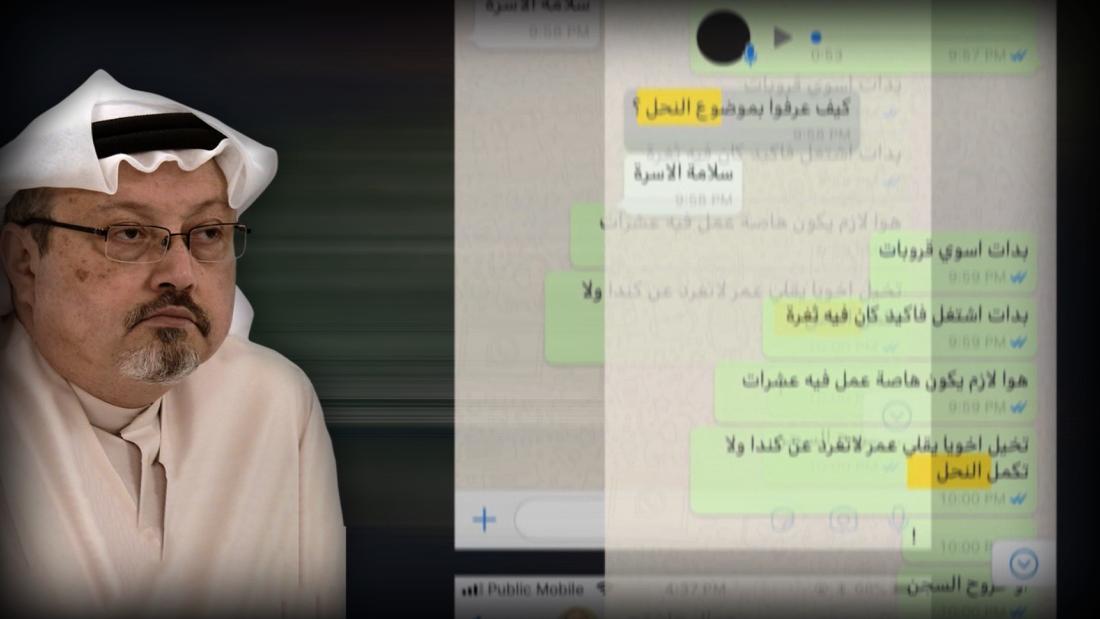
We're only a few days into December and some people are already getting fed up with Christmas music -- like a Cleveland radio station that banned the song "Baby, It's Cold Outside" because of its predatory undertones. Here's what else you need to know to Get Up to Speed and Out the Door. (You can also get "5 Things You Need to Know Today" delivered to your inbox daily. Sign up here.)
1. Jamal Khashoggi
Some recent revelations about the killing of a Washington Post journalist in his home country of Saudi Arabia have intensified international concern over the incident. CNN has obtained access to Jamal Khashoggi's WhatsApp messages, and they show the journalist was extremely critical of Saudi Arabia and its Crown Prince Mohammed bin Salman.
Khashoggi and the Saudi exile he was messaging with believed their conversations were intercepted by the Saudi government. This all comes days after a CIA assessment was made public that concluded that bin Salman had personally ordered Khashoggi's death.
Both the Saudi government and top US officials deny there is any hard evidence linking the country's crown prince with the killing of Khashoggi in October at the Saudi Arabian consulate in Istanbul. The slaying has become a diplomatic crisis, and the Trump Administration has been hesitant to question Saudi Arabia about what really happened.
A third week of violent protests in France has led President Emmanuel Macron to call for a solution. Macron has asked Prime Minister Edouard Philippe to meet with heads of political parties and representatives of the so-called "yellow vest" protesters after 92 people were injured and more than 200 arrested during a Saturday protest that attracted around 36,000 people.
The "yellow vest" movement was formed to demonstrate against rising gas prices and taxes on polluting forms of transport. Over time, the unrest has transformed into a broader demonstration against Macron, his government, and tensions between the metropolitan elite and rural poor.
The oil-rich country of Qatar is pulling out of OPEC, the Organization of the Petroleum Exporting Countries. The country says it wants to focus more on natural gas production. Although Qatar's contributions to OPEC have been less than, say, Saudi Arabia, its decision to pull out of the oil cartel is significant for a few reasons.
One, it's been a member for nearly 60 years. Two, it reflects economic tensions in the region (Qatar has been under an economic embargo by some of its neighbors, including Saudi Arabia). Three, the decision comes at a time when OPEC is looking to expand its membership, so Qatar's withdrawal definitely stings.
4. James Comey
James Comey will testify in a private deposition with House Republicans this week, but only under the condition that a transcript of the testimony be made public. The Former FBI Director has been a subject of interest in an investigation by the House regarding the FBI and Justice Department's handling of probes into Hillary Clinton's email practices and Russian interference in the 2016 election.
Comey initially pushed back on the subpoena, saying he wanted to testify in a public setting. House Judiciary Chairman Bob Goodlatte officially issued subpoenas for Comey and former Attorney General Loretta Lynch in November to bring the investigation under the wire because Goodlatte is retiring soon, and the investigation will end when the Democrats take control of the house in January.
Could the tariff tiff between the US and China be cooling? The stock markets certainly want to believe so. Stocks jumped higher Monday morning after the two countries said they would hold fire on further tariffs for the time being and try to settle differences through talks.
During the G20 summit in Argentina, President Trump and Chinese President Xi Jinping agreed to a temporary truce on trade. Trump agreed to maintain the 10% tariffs on $200 billion worth of Chinese goods and not raise them to 25% "at this time." In exchange, China agreed it was willing to purchase a "very substantial" amount of agriculture, energy and other goods from the United States to help reduce the trade imbalance.
No comments:
Post a Comment